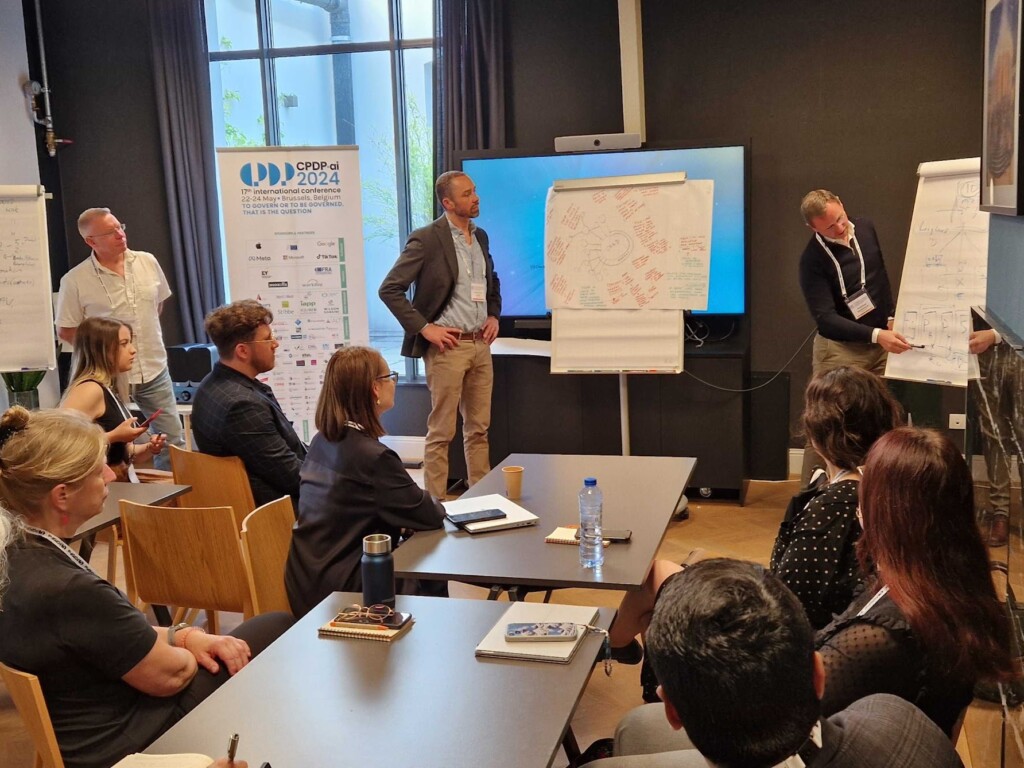A group of MyData staff, members and friends co-hosted a workshop with OECD on the role of Trusted Data Intermediaries at this year’s CPDP conference in Brussels. We were happy to be able to take our members along to help facilitate these important discussions, presenting case studies that highlight the importance of a human-centric approach. Together participants developed strategies around how ethical and responsible use of data could be embedded in OECD recommendations, government policies and public spending strategies. The event participation was part of MyData’s collaboration with OECD’s TDI programme that began earlier this year with a survey and an online roundtable. Read more below.
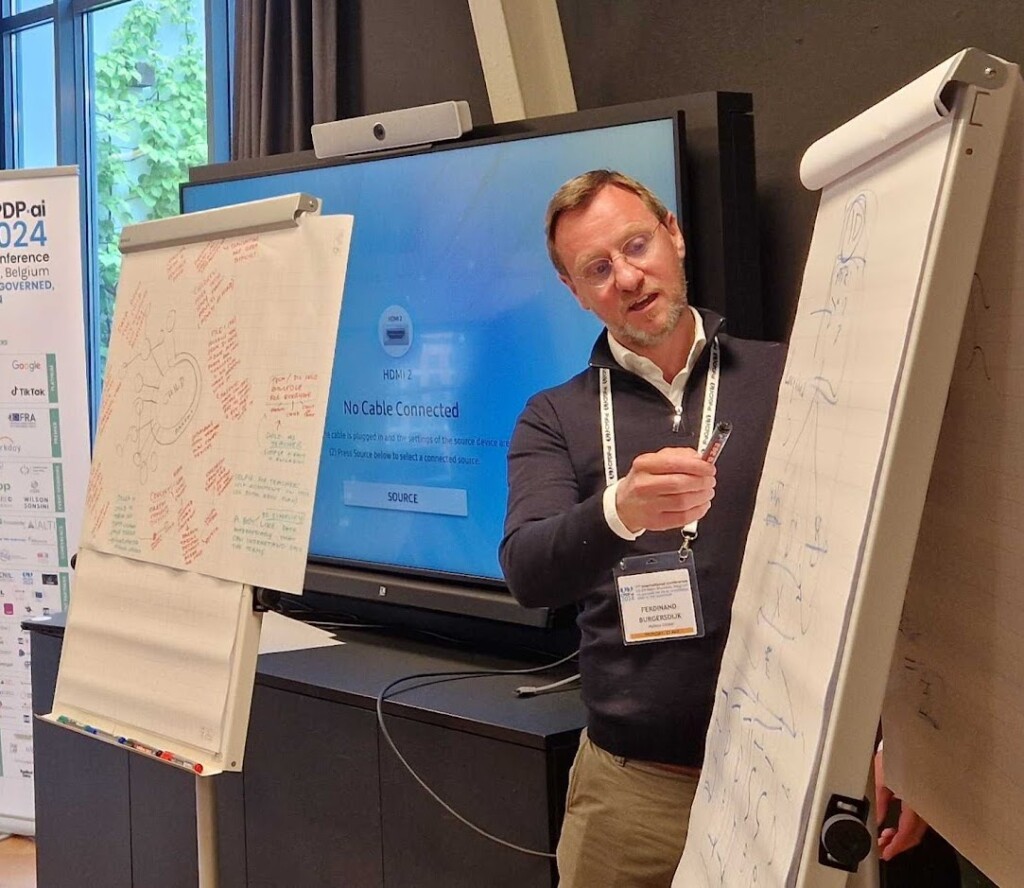
Through 2024, the OECD is running a Task Force on Trusted Data Intermediaries, which aims to provide a space for governments to discuss policies and actions to encourage ethical data use and provide the right conditions for data intermediaries to thrive in society.
MyData Global has been supporting this programme with a series of activities through which our members have been able to contribute their expertise and perspectives. In doing so, our members have been able to inform these important discussions that are helping governments around the world to shape the future landscape of policies and public investment.
MyData Global members’ contributions to date have involved three main stages:
- A survey of our members conducted in March, to collect perspectives and insights – report available here
- An online roundtable where four of our members presented their perspectives to the OECD and assembled government representatives on 26th April – slides here
- A joint MyData Global / OECD workshop, “The Role of TDIs for Enhancing Agency and Control in the Age of AI” on 23rd May – event here.
Our survey consultation invited the MyData global community to reflect on the challenges and opportunities for trusted data intermediaries in the emerging data economy. We received 26 responses from 14 countries in all. Respondents included retailers, nonprofits, startups, researchers, data using services, open data advocacy organisations and other MyData community members. The responses were analysed, and seven key insights were identified:
- Regulatory harmonisation is necessary to remove barriers and enable innovation;
- Privacy & security approaches need to be holistic across data pipelines;
- Large data controllers are inhibiting true data portability;
- Authoritative and credible technical standards are essential for ensuring; interoperability, enhancing security, and building trust;
- Success depends on significant government investment;
- Governments should prioritise data economy awareness & education; and
- A focus on citizen empowerment is needed to ensure data intermediaries have impact.
For more details on these insights and the analysis of survey responses, please read our report.
Showcasing members in the regulatory roundtable
Following the survey, OECD hosted an online roundtable on April 26th which invited representatives of governments from Finland, Denmark, Mexico, Japan, Singapore, the UK and the EC. Organisational members DataPal, fairsfair foundation, and Meeco and individual member Tom Fish all spoke on behalf of MyData Global, bringing their unique perspectives on this topic. As experts from the MyData community, they had the chance to hone the presentation of their own work for a governmental audience as well as to stress the importance of the human-centric approach and offered their insights on how governments could incorporate MyData ideals (in line with our shared vision in the MyData declaration).
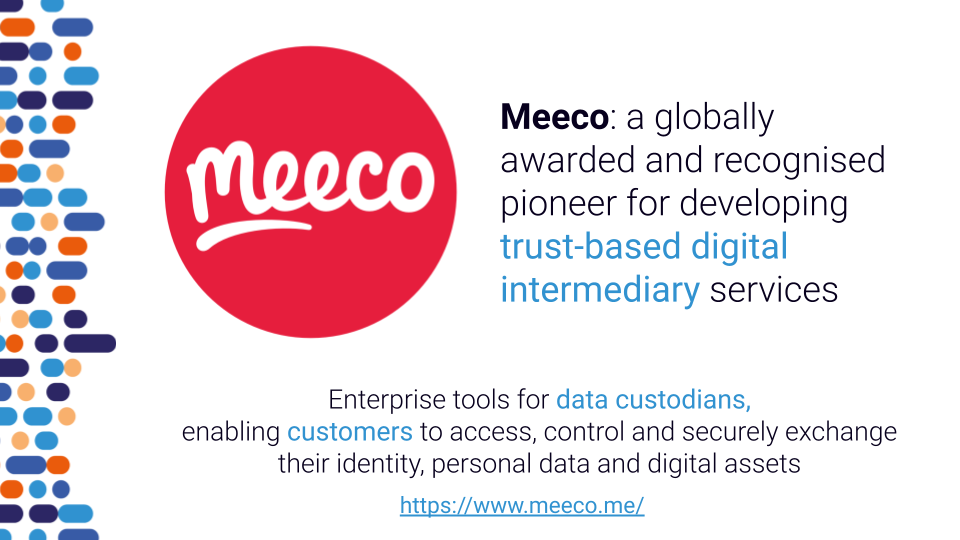
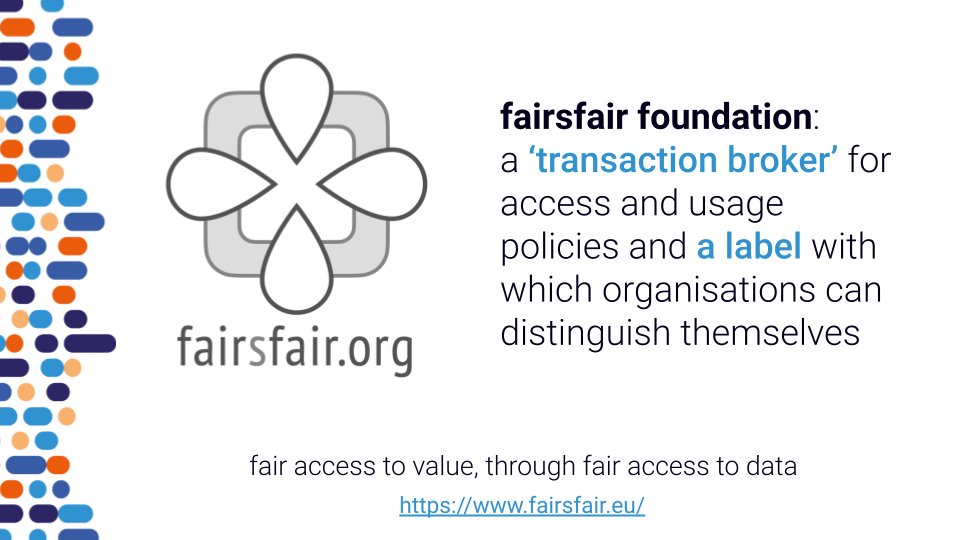
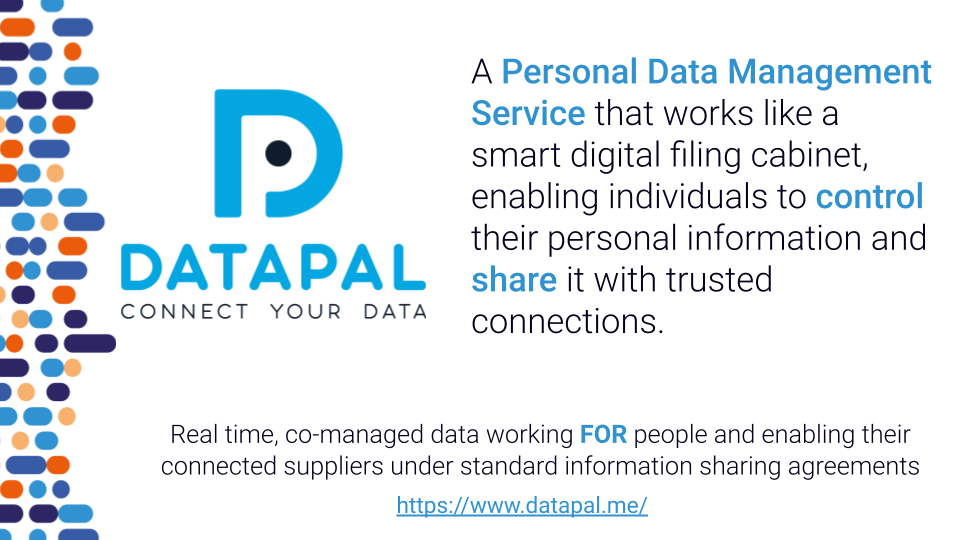
Meeco presented its API platform for Secure Value Exchange (SVX), and some of the use cases it is currently deploying across three regions.
The Fairsfair foundation elaborated on the ecosystem governance mechanisms that enable transaction brokers to ensure interoperability and compliance between data-sharing parties.
DataPal described the ‘network of networks’ architecture (read more in the MyData Global whitepaper here) in which standardised information-sharing agreements and a common protocol such as JLINC can enable the individual to function as an autonomous node and point of integration for data sharing.
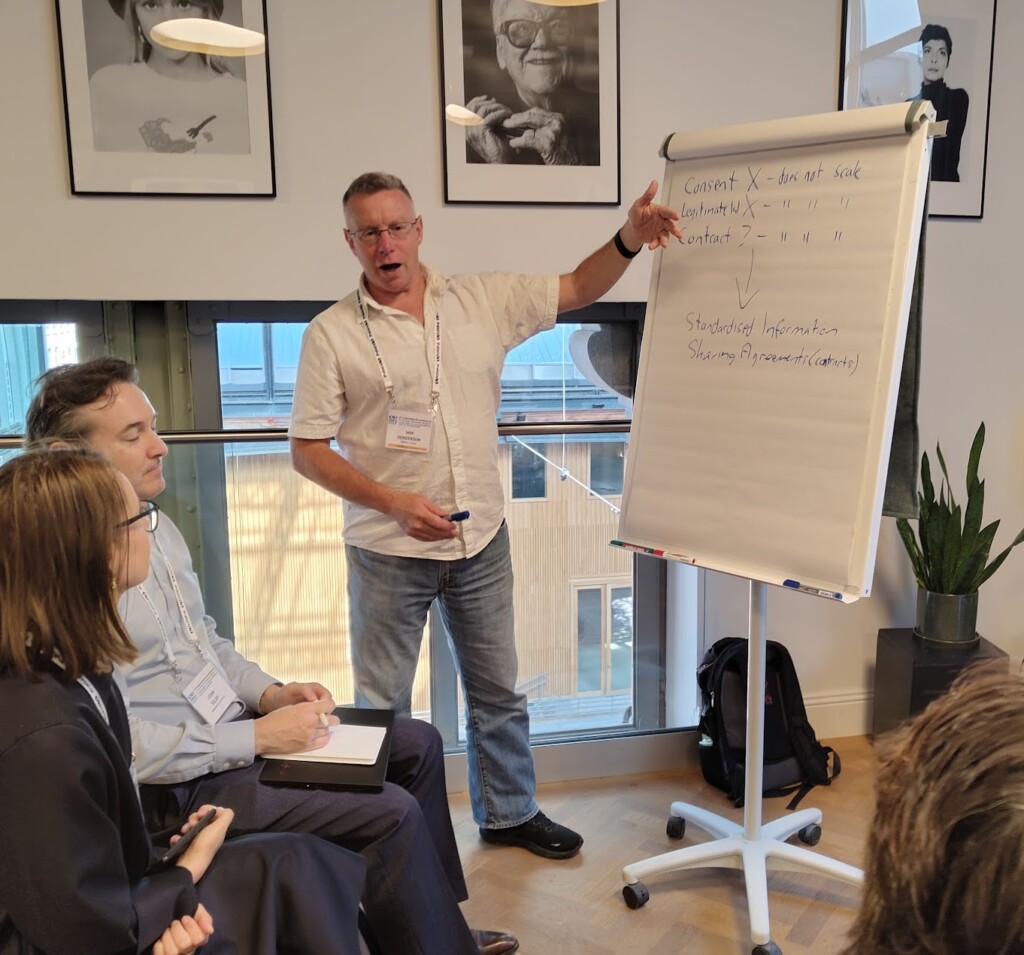
Building on these engagements, three MyData members were sponsored to attend the Computer Protection and Data Privacy (CPDP) conference in Brussels on May 23rd. After a brief introduction and presentation of use cases, these members worked with MyData Global and OECD staff in a combined team working in a clinic style with participants to identify and assess obstacles to user adoption and scaling. This led to dynamic discussions on the comparative advantages of contracts as mechanisms for consent, on strategic approaches to building value narratives, and on the importance and challenges of simplification of user experiences, particularly in regard to consent and data aggregation.
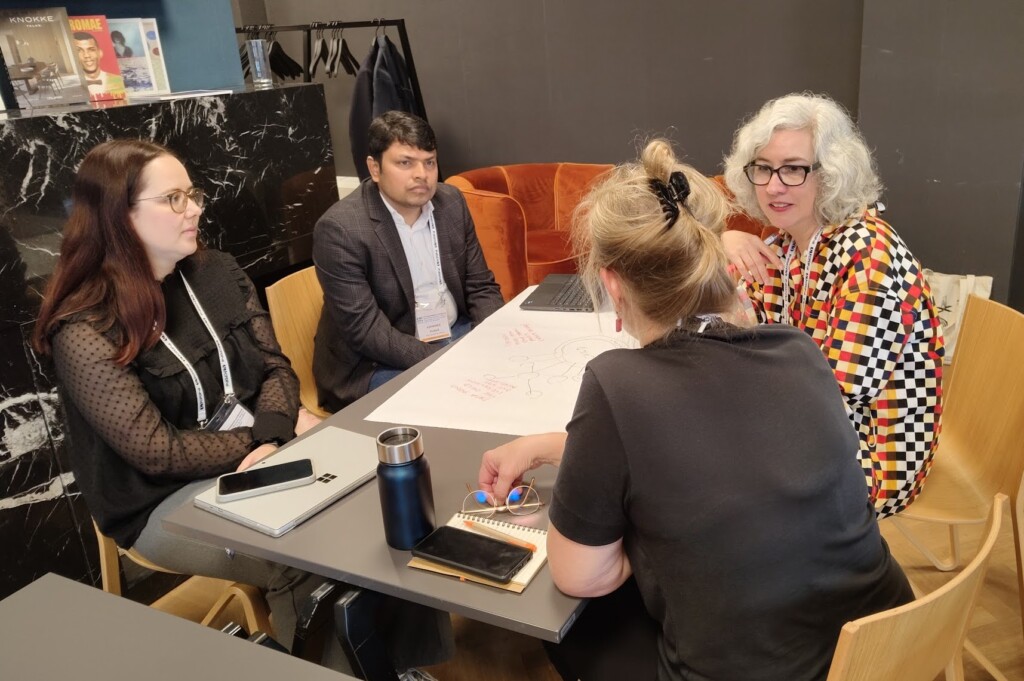
Ferdinand Burgerdijk of Fairsfair foundation, Iain Henderson of DataPal and MyData member Paula Bello presented three case studies of how the data intermediary model can drive positive impact for individuals and society:
- Ferdinand Burgersdijk presented a case study on mobility;
- Iain Henderson presented a case study on consumer services and loyalty; and
- Paula Bello presented the case study of the Sitra pilot project Edward (which allows families to cultivate a child’s lifelong learning through data).
In the workshop exercises the participants discussed these use cases, considering what challenges might inhibit user uptake at scale and what could be done about it. Thus these use cases provided a real-world tangible context to facilitate consideration of how policies and public funding can support the data intermediary landscape in practice.
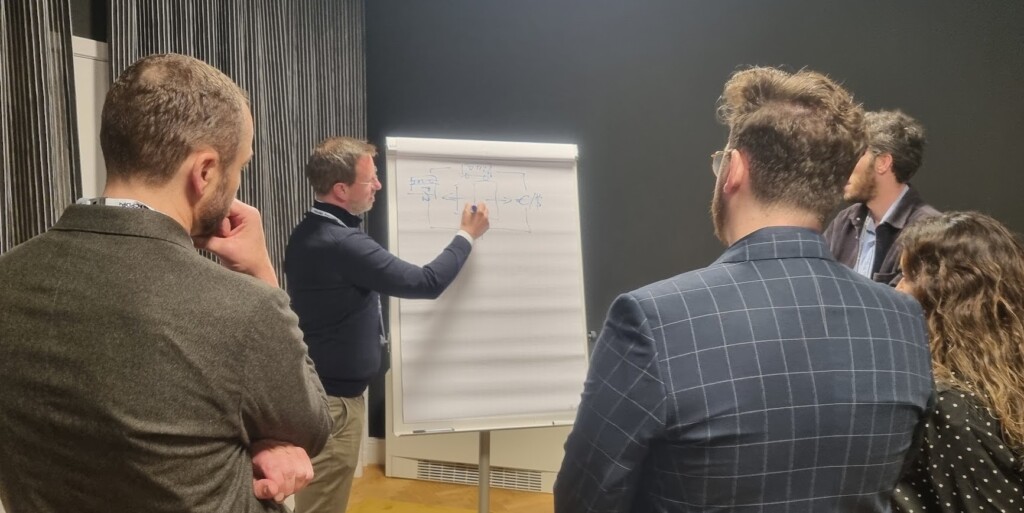
In summary, as MyData Global we are very happy about the outcome of the event: it strengthens our community and helps us promote our goals and principles in alignment with EU and international strategy and as a global advisor on the fair and ethical use of personal data.
We would like to thank everyone who participated and shared their insights, and we look forward to again inviting our members to bring their expert perspectives and participate in important advisory and strategic work like this in future. We’re in this together and only if we are willing to share and support each other, we can have genuine impact.
Building upon the results from the survey and further exploring possible solutions to the challenges raised in the workshop, OECD, MyData Global and our members can begin to formulate recommendations to governments that will mitigate risks to individuals and pave the way to translate our principles into action that can empower citizens in a fairer digital future.

